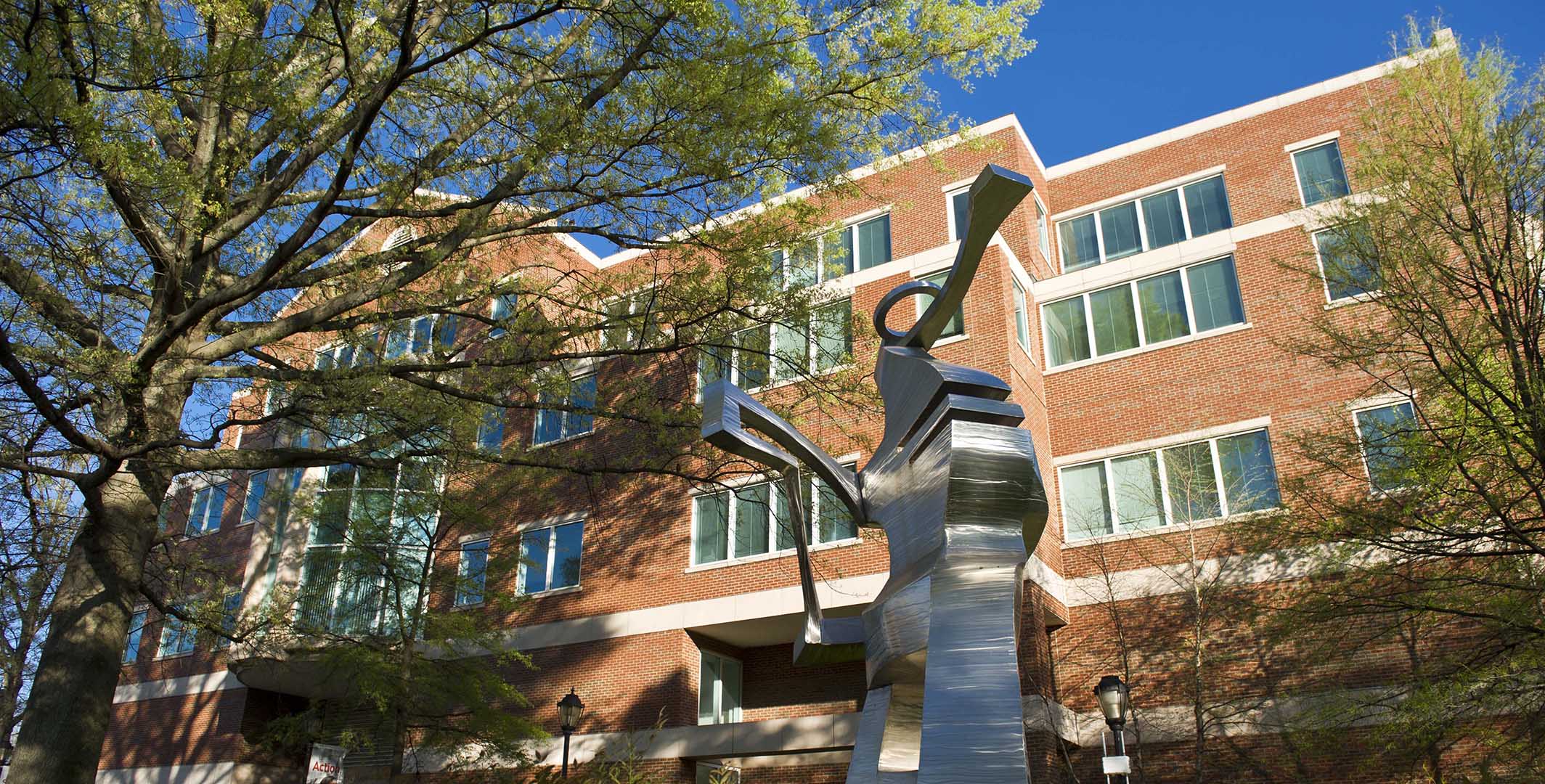Literature, Media, and Writing
Literature, Media and Writing (formerly English)
From Phillis Wheatley and Alice Walker to Ava DuVernay and Beyoncé, women of African descent are central to our story. The major in Literature, Media, and Writing (formerly English) at Spelman College offers comprehensive training in English-language literary, visual, and rhetorical traditions with a special emphasis on Black women’s contributions to global histories of cultural expression. With deep roots in the genealogies of Black feminism, our major empowers Spelman students by centering the intersections of gender and race across our curriculum.
Students are taught by innovative faculty whose internationally-recognized expertise in areas such as creative writing, film and media studies, critical race theory, gender and sexuality studies, post- and anti-colonial studies, and critical disability studies drives the conversation—and the discipline—in the spirit of social transformation that is the cornerstone of a Spelman education. A small professor-to-student ratio means that each student’s unique goals and interests are recognized and nurtured. The highly individualized nature of our program underscores our fundamental belief in the power of free-thinking women.
Why join the Department of Literature, Media, and Writing?
Reading, writing, and engaging with media are not merely amusements or retreats from reality; they are integral to building and maintaining a free and just society. As Audre Lorde reminds us, “poetry is not a luxury. It is a vital necessity of our existence” on which “we predicate our hopes and dreams toward survival and change.” Through a varied and rigorous curriculum that examines English-language cultural expression across space and time, and in all its forms, students learn to think critically about the ideas that have shaped our world. They learn that deep reading and deep writing make us more human.
Whether they are conducting original research in Spelman's rich archives (which include the personal papers of Audre Lorde and Toni Cade Bambara), presenting original works at one of Atlanta's many literary festivals and societies, or applying their training to internships in advertising, journalism, law, or tech, our majors are united in their belief that language is liberation, and that words can and do change the world.
OK, but do Literature, Media, and Writing majors get jobs?
Absolutely! Even in the wake of economic downturns, our majors have gone on to top graduate and professional schools and have built successful careers in areas such as arts administration, communications, politics, journalism, public health, medicine, technology, business, law, and education. In a world where information is readily available and always evolving, Literature, Media, and Writing students graduate with skills that allow them to move ideas, and themselves, forward.
This 21st-century major acknowledges the dynamic relationship between technology and textual production, teaching students to analyze a variety of texts and mediums, apply critical theory to real-world problems, and articulate solutions using written, oral, visual, and digital modes. Through a broad and rigorous course of study, our graduates develop the skills in critical thinking, writing, synthesis, problem solving, creativity, empathy, and interpersonal communication that are essential to staying competitive in today’s job market.
Literature, Media and Writing
Contact Info
Literature, Media, and Writing Department
The Camille Olivia Hanks Cosby, Ed.D., 3rd Floor Academic Center
Atlanta, Georgia 30314
404-270-5576
englishdepartment@spelman.edu
Mon. - Fri. | 9 a.m. - 5 p.m.
Requirements
The major in Literature, Media, and Writing consists of at least eleven 4-credit courses and three 1-credit workshops designed to help students maintain consistency and community. Four foundational courses are required to begin the major. After the foundational courses, students elect at least seven additional 4-credit courses—two from each of three focus areas and one additional course from any focus area. Of these seven electives, at least three must focus on historical periods before The Harlem Renaissance, and at least two must be 400-level seminars.
FOUNDATIONS: 16 credits, 4 required courses
- LMW 280 – Reading as a Revolutionary Act (formerly: Intro to Literary Studies)
- LMW 285 – Theory as Liberatory Practice (formerly: Intro to Critical Studies in English)
- LMW 290 – Writing as the Measure of Our Lives (formerly: Art of Writing)
- LMW 375 – Rootedness: The Ancestor as Foundation (formerly: Seminal Writers in the African American Tradition)
SOPHOMORE, JUNIOR, SENIOR WORKSHOPS: 1 credit each, fall semester only
FOCUS AREA ELECTIVES: 28 credits, 7 courses (select 2 per area + 1 from any area) *
- Focus Area 1: Eras & Movements
- Focus Area 2: Genre, Form, & Craft
- Focus Area 3: Theory, Culture, & Society
*Of the seven Focus Area electives, at least three must focus on historical periods before The Harlem Renaissance, and at least two must be 400-level seminars.
Literature, Media, and Writing Major Requirements and Course List
The English major consists of at least 11 four-credit courses and two one-credit workshops. Two entry-level courses and one workshop are required to begin the major.
- *ENG 200: Sophomore Workshop (one-semester course, fall semester only. Does not replace Braven.)
- *ENG 280: Introduction to Literary Studies
- *ENG 285: Introduction to Critical Studies in English
- *ENG 310: Shakespeare (may not be used to satisfy the pre-1900 requirement.)
- *ENG 375: Seminal Writers in the African American Tradition
- One course in Global and/or Interdisciplinary Studies
- One course in U.S. Literature
- One other course in British Literature
- Area of Deep Study (4-5 more courses; at least two at the 400-level)
- *ENG 400: Senior Workshop (one-semester course, fall semester only)
Take a Virtual Tour of Campus
It's time to explore our beautiful campus! Sign-up today, bring your family, and let us show you what will make Spelman College your home away from home!

